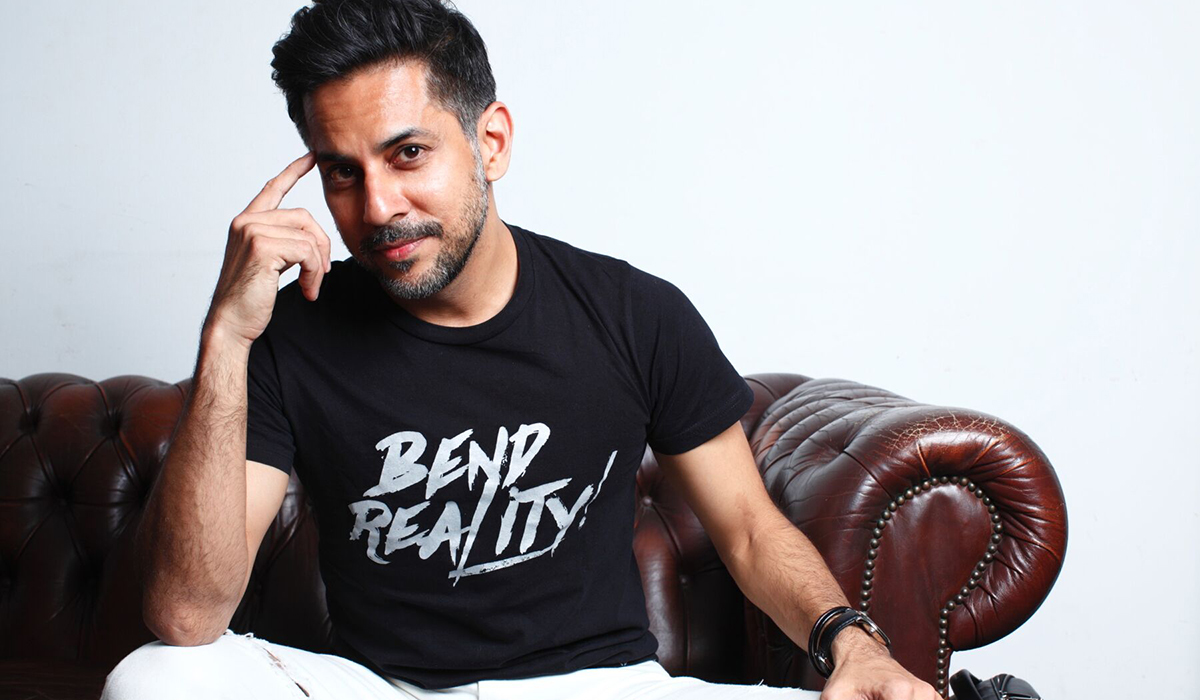Success stories often focus on people who work hard, do well, and catch some lucky breaks on their way to reaching their goals. Vishen Lakhiani, ’99, is certainly a success, but his path to the top and the way he tells his story takes a far different approach. He highlights the places he failed, the goals he missed, and the mistakes he made along the way. In his mind, that is what truly lays the groundwork for success.
“The most important lesson in life is not whether you succeed but whether are you growing,” Lakhiani says. “My philosophy is, grow so fast that your friends who haven’t kept in touch in 30 days have to get to know you all over again.”
As the founder and CEO of Mindvalley, a personal growth education empire, Lakhiani doesn’t just embrace lifelong learning for himself—he’s trying to revolutionize the world of work by inspiring others to embrace a growth mindset and personal transformation. The author of two best-selling books—including his most recent, “The Buddha and the Badass: The Secret Spiritual Art of Succeeding at Work” (Rodale Books, 2020)—he seeks to redefine how we think about everything from our daily routines to the rules that govern how, when, and why we work.
Since founding Mindvalley in 2003, he has built it into an online learning platform that boasts a campus without borders; the best teachers in the world; courses and content that nourish the body, mind, and soul; and more than 15 million students worldwide. He’s also set a goal of bringing the company’s innovative learning approach into 100 national school systems and every company in the Fortune 500 in the next 10 years.
Born in Malaysia, Lakhiani first came to the United States for college. He chose to attend U-M because it allowed him to study two very different interests with top-notch programs: computer science and performing arts. It became the foundation for his success. At Michigan, he learned the basics of building a business, embracing unconventional sources of learning, and, most importantly, setting big goals.
“The audacious goals came from a leadership program I took at Michigan where the slogan was, ‘Have a healthy disregard for the impossible,’” Lakhiani says. “That program encouraged me to pursue crazy ideas.”
In what would become a defining theme of his life and career, his time at Michigan ended up shaping his life more outside the classroom than in. He never took a business class, but says he tapped into clubs, groups, and other students to get real-world experiences that influenced his future entrepreneurial ventures. A highlight of his time on campus was his deep involvement in AISEC, a global platform to help young people develop leadership skills.
“AISEC was amazing because it would teach kids business by helping them run a business. It was also dedicated to global peace, which shaped the world-centric focus that’s part of my company today.”
And though he studied electrical engineering and computer science, it was the classes he took in the performing arts and photography that ended up having the most impact on his work today.
“When I went on to start Mindvalley, we became one of the dominant companies in our field because of the quality of our design,” Vishen says. “I took photography as an elective. I learned design because when I was a freshman, I was hired as a web designer by a senior who started a company called Beyond Interactive.”
Lakhiani says traditional schooling wasn’t for him and he barely graduated. After that, he did try a traditional career path, accepting an internship at Microsoft, but says he hated the work and left after 11 weeks. It took him a while to find his way after that. He worked at a nonprofit and moved to Silicon Valley and tried to make it as an entrepreneur but lost everything when the dot-com bubble burst.
Things started to turn around for him when he learned meditation, which helped center and focus him and turned him into a high performer at work. He loved it so much he began to teach meditation and founded Mindvalley with his U-M roommate (with whom he’s since parted ways), initially to sell his own meditation CDs.
Mindvalley started to grow when Lakhiani published his first book, “The Code of the Extraordinary Mind: 10 Unconventional Laws to Redefine Your Life and Succeed on Your Own Terms” (Rodale, 2016), which became a New York Times bestseller. Lakhiani’s second book, “The Buddha and The Badass: The Secret Spiritual Art of Succeeding at Work” (Rodale, 2020), also became a bestseller. His goal now? To continue to grow his business and donate $1 billion within 50 years of his graduation—by May 2049. In the process, he’s also “aiming to create the world’s most influential education movement.”
Vishen’s Top Tips
Vishen Lakhiani often speaks about how people can bring passion and balance to their work and life, even while coming out of a pandemic. Following are his top three tips, in his own words.
- Focus on growth. To me, growth is not just doing the regular stuff, like meditation, exercise, and eating well. It’s investing 30 minutes of my time every single day on personal growth—whether that’s reading a book or watching a Mindvalley program on networking, leadership, spirituality, or more.
- Have a long-term mission pulling you forward. My long-term mission is to make an impact on education and climate change so every morning when I wake up, I’m asking myself, is this going to help me donate $1 billion to improve education globally or help fix our environment? Your mission doesn’t have to be as bold as that. It can be simpler. But you must always have a long-term mission pulling you forward because that acts as a compass to ensure that you’re moving in the right direction.
- Don’t believe that you have to age. There’s a massive difference between your chronological age and your biological age, and you can always make a change. I used to be in pretty bad health, but right now everything, from the way I eat to the way I exercise to the way I meditate 30 minutes a day, is all hyper-optimized to keep my body really healthy, and that makes me feel better.
He adds that, coming at a time when many have faced economic, health, and other pandemic challenges, people should realize that, in the end, it’s all about the journey and not the destination. “As Larry Page of Google says, the whole point is that about 50% of your goals should have a 50% chance of failure,” Lakhiani says. “The point isn’t to hit the goal. The point is to move toward it. If you fail, it doesn’t matter. In fact, if I’m not failing at 50% of my goals, it means I’m playing too small.”
Jennifer Davis, ’95, is a writer and communications coach based in Washington, D.C., who runs her own company—Jennifer Davis Media Group.





